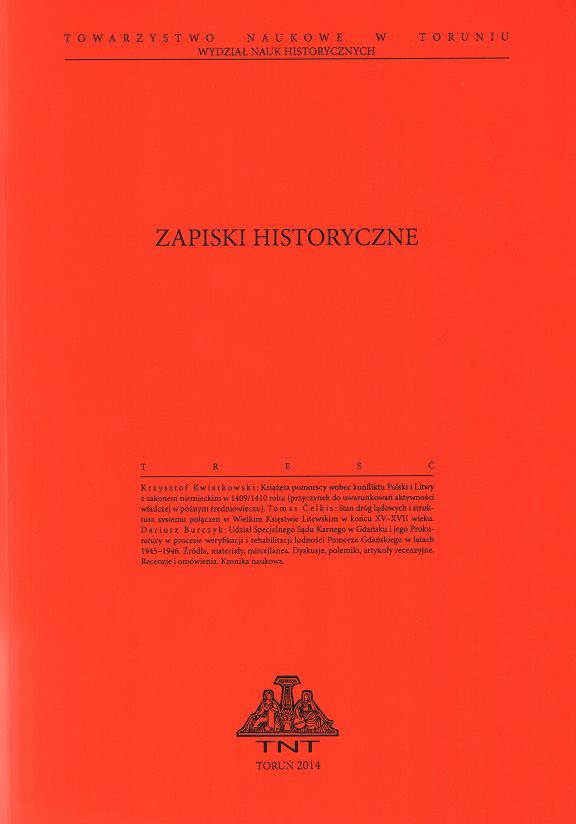Organizacja Monarchistyczna w województwie pomorskim (1925–1927)
The Monarchist Organisation in the Pomeranian Voivodeship (1925–1927)
Origins – Social Environment – Activities
Author(s): Tomasz ŁaszkiewiczSubject(s): Political history, Social history, Interwar Period (1920 - 1939)
Published by: Towarzystwo Naukowe w Toruniu
Keywords: monarchism; conservatism; political life; political parties; Second Polish Republic; Pomeranian Voivodeship
Summary/Abstract: Monarchist ideas after the First World War were introduced to Polish political life by student circles. It took the first years of activity to crystallize the programme, which finally led to its revival and establishing contacts with well-known representatives of conservative circles. These activities resulted in the establishment of the Monarchist Organisation in Poznan in 1925, whose operations soon included the area of the Pomeranian Voivodeship, largely owing to its interim president, Józef Bolesław Robakowski, who came from that region. Considering the leadership and financial background of the new organization, its establishment and development should be connected with the landed gentry’s attempt to counteract the agricultural reform, which was adopted with the support of the National Democracy in summer 1925. The postulate of the restoration of the monarchy was based on the pre-war sense of order, which was very widespread, especially in Western Poland. The right-wing sympathies spread among the inhabitants of this region gave hope for the support of a movement that appealed to nationalism, Catholic faith and royal authority. The Pomeranian landed gentry was, however, divided in the assessment of this political movement, and some influential activists explicitly distanced themselves from such views. These views seemed to be detrimental to the common interests of landowners and owners of smaller farms, which had been developed in the region for years. After two years of activity, the Monarchist Organisation merged with the All-Estate Monarchist Organisation, the Pomeranian leaders of the royalist movement joined the conservatives who had already been supporting the political movement of ‘Sanation’. The Monarchist Organisation turned out to be an anachronistic group and did not gain much public support. Nor did it find unequivocal approval among the Pomeranian landed gentry which had been subjected to social modernization for a long time. With a more pragmatic approach, the organization was able to effectively pursue its political goals in the following years.
Journal: Zapiski Historyczne
- Issue Year: 85/2020
- Issue No: 1
- Page Range: 123-139
- Page Count: 17
- Language: Polish

